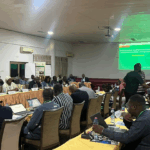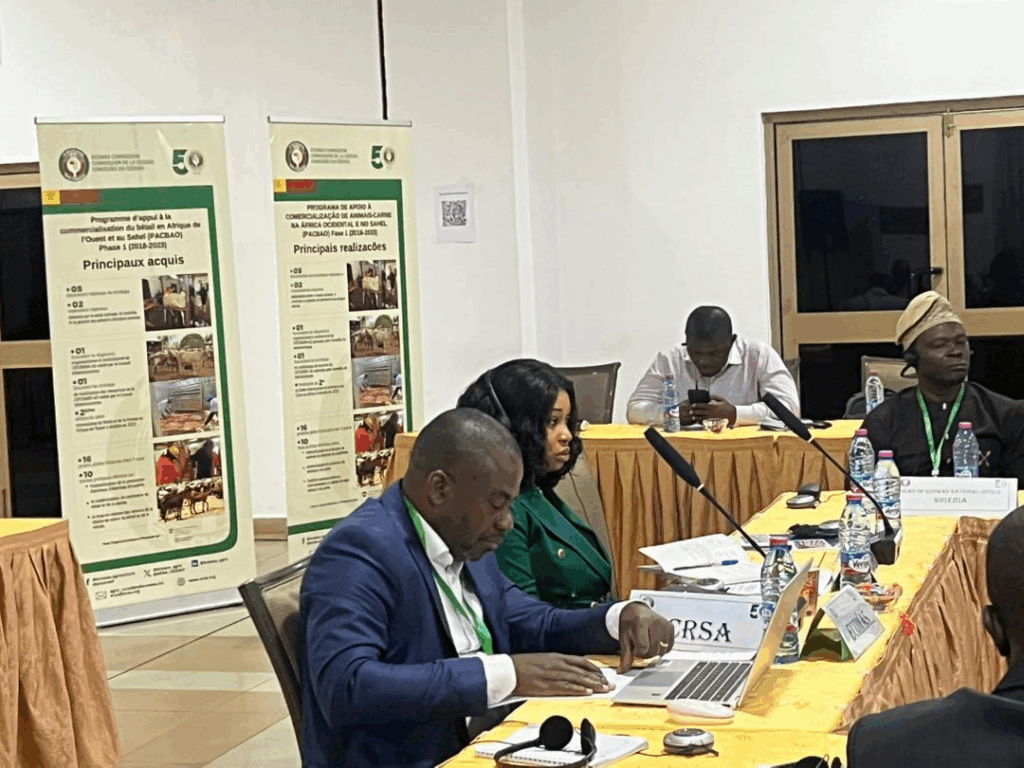
The Ministry of Food and Agriculture has partnered with the Economic Community of West African States (ECOWAS) to strengthen Ghana’s livestock sector and cut down on meat imports.
This comes as ECOWAS, with support from the Swiss Development Cooperation, launched the second phase of the West Africa Livestock Marketing Support Programme (PACBAO) in Accra on Tuesday, September 9, 2025.
The four-year programme (2024–2028) is expected to modernise the livestock and red meat trade across West Africa and the Sahel, strengthen stakeholder capacity, and improve policy and regulatory frameworks.
It builds on the first phase (2018–2023), which improved beef production, modernised trade, and created stronger business networks among value chain actors. The new phase aims to increase intra-regional trade flows by 30 percent for livestock and 15 percent for red meat, while reducing dependence on imports from outside the region.
At the launch held at the Mensvic Hotel in Accra, Minister for Food and Agriculture, Eric Opoku, opened the workshop on behalf of President John Mahama.
He underscored the importance of the livestock sector, which contributes about 14 percent to Ghana’s agricultural GDP, but continues to face challenges such as low production and high import dependence.
“Livestock plays a critical role in food security, income generation, and employment, particularly in rural communities,” he said.
“Yet Ghana still imports a significant share of its meat and livestock to meet domestic demand. Our goal is to modernise production systems, improve post-harvest management, and leverage investments to unlock the sector’s full potential.”
The Minister outlined government interventions, including the Poultry Farmer-to-Table Programme, expanded access to affordable feed and finance, strengthened disease control and surveillance, and youth engagement in livestock enterprises.
He stressed that these interventions align with the ECOWAS Agricultural Policy (ECOWAP) and the objectives of PACBAO.

Phase One of PACBAO also yielded tangible results in Ghana through a project implemented by the Ghana Developing Communities Association (GDCA) in the Northern and Upper East Regions.
The initiative improved animal quality, reduced disease incidence, increased the supply of quality slaughter animals, and built the capacity of livestock farmers, traders, processors, and veterinary staff.
For the second phase, ECOWAS has secured funding of 8 million Swiss francs (about 10 million US dollars) from the Swiss Development Cooperation, representing 53 percent of the programme’s total budget.
The ECOWAS Resident Representative in Ghana, Ambassador Mohammed Lawan Gana, also emphasized the importance of agriculture to the economies of Sahel countries, noting that the sector provides massive employment.
He stressed that Phase Two of PACBAO is designed to further strengthen the region’s livestock value chain
According to Mohamed Zongo, Acting Executive Director of the ECOWAS Regional Agency for Agriculture and Food, PACBAO-2 will play a critical role in regional trade. “The programme will specifically facilitate regional trade in livestock and red meat along the main export corridors in West Africa and the Sahel,” he said.
Mr Opoku reaffirmed Ghana’s commitment, describing PACBAO as “a strategic instrument not only for food and nutrition security, but also for advancing regional trade integration, resilience, and inclusive economic growth.”